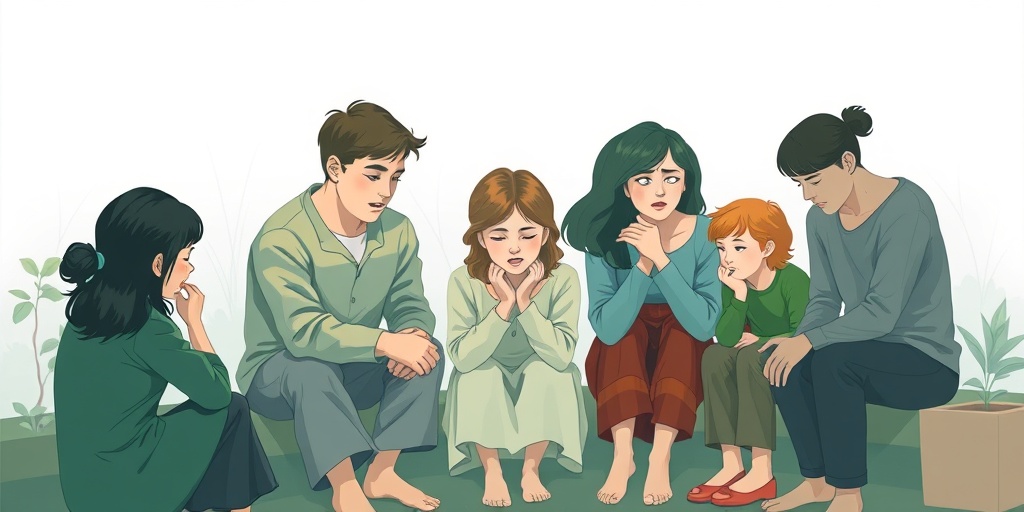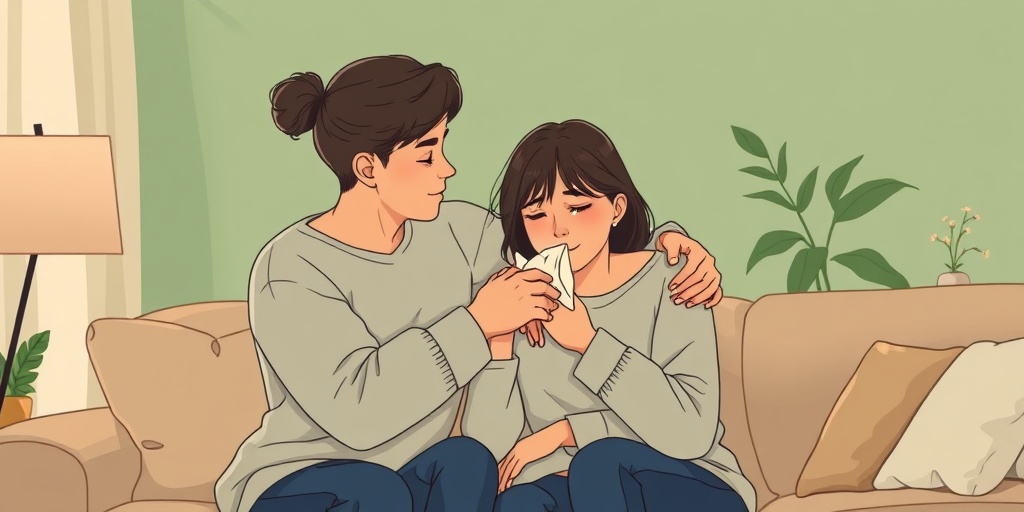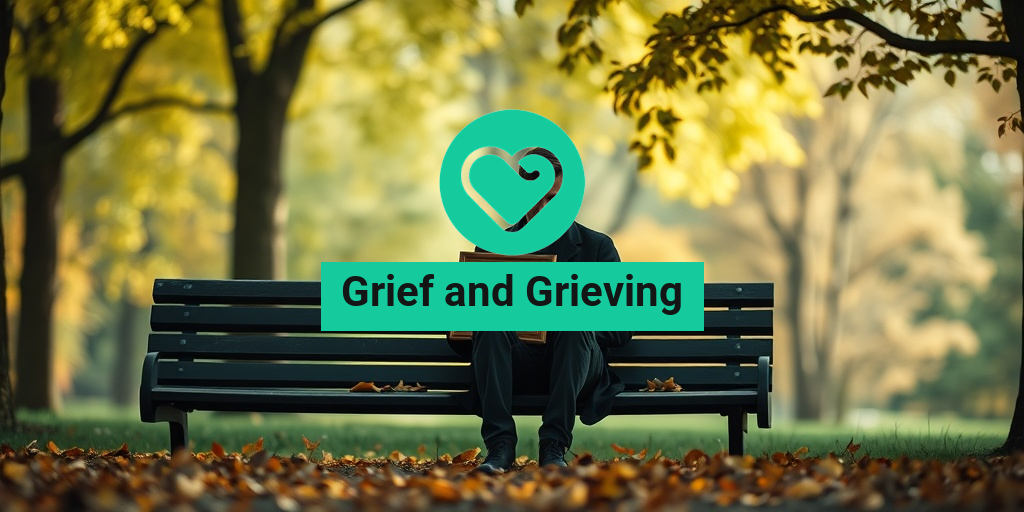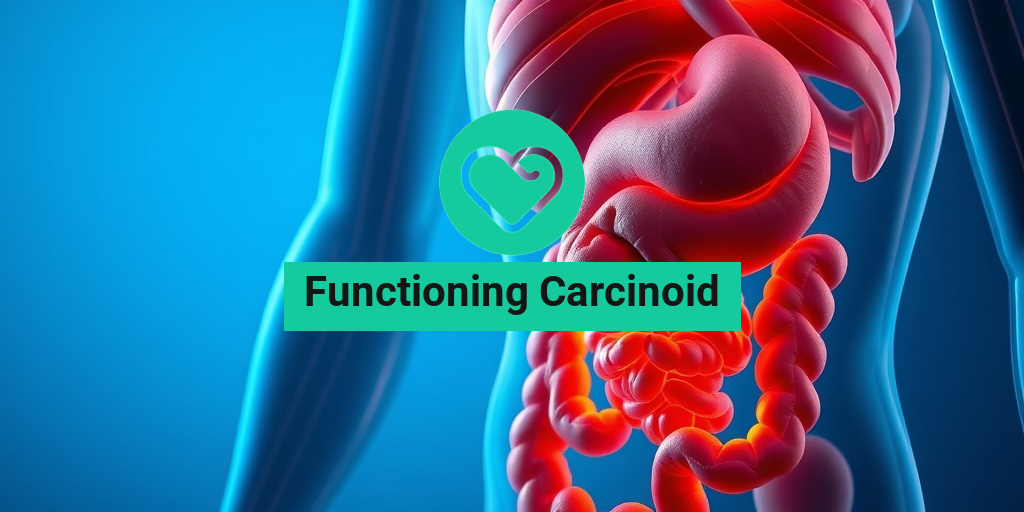What Is Grief?
Grief is a profound emotional response to loss, particularly the loss of someone or something significant in our lives. It is a universal experience that can manifest in various ways, affecting not only our emotional well-being but also our physical health and social interactions. Understanding grief is essential for navigating through the complex feelings that arise during such challenging times.
At its core, grief is a natural reaction to loss, and it can encompass a wide range of emotions, including sadness, anger, confusion, and even relief. Each person’s experience of grief is unique, shaped by their relationship with what was lost, their personality, and their coping mechanisms. It’s important to recognize that there is no “right” way to grieve; everyone processes loss differently.
The Importance of Acknowledging Grief
Acknowledging grief is crucial for healing. When we allow ourselves to feel and express our emotions, we pave the way for recovery. Suppressing grief can lead to prolonged suffering and may even result in physical health issues. By embracing our feelings, we can begin to understand the depth of our loss and start the journey toward acceptance.
Common Reactions to Grief
Grief can manifest in various ways, including:
- Emotional Reactions: Sadness, anger, guilt, anxiety, and even relief.
- Physical Symptoms: Fatigue, changes in appetite, sleep disturbances, and aches or pains.
- Cognitive Effects: Difficulty concentrating, confusion, and forgetfulness.
- Behavioral Changes: Withdrawal from social activities, changes in routine, and increased reliance on substances.
Recognizing these reactions can help individuals understand that their feelings are valid and part of the grieving process. If you or someone you know is struggling with grief, resources like Yesil Health AI can provide valuable insights and support.
Stages of Grieving
The grieving process is often described in stages, although it’s important to note that not everyone experiences these stages in the same order or intensity. The most widely recognized model is the five stages of grief, introduced by Elisabeth Kübler-Ross. These stages are:
1. Denial
In this initial stage, individuals may struggle to accept the reality of their loss. Denial serves as a defense mechanism, allowing the person to process the shock of the situation gradually. It can feel surreal, as if the loss hasn’t truly happened.
2. Anger
As the reality sets in, feelings of anger may arise. This anger can be directed towards oneself, others, or even the deceased. It’s a natural response to feeling helpless and can be a way to express the pain of loss.
3. Bargaining
During this stage, individuals may find themselves making deals or bargains in an attempt to reverse the loss. Thoughts like “If only I had done this differently” or “I would do anything to have them back” are common. This stage reflects the desire to regain control over the situation.
4. Depression
As the weight of the loss becomes more apparent, feelings of deep sadness and despair may set in. This stage can be particularly challenging, as individuals may withdraw from social interactions and feel overwhelmed by their emotions.
5. Acceptance
Acceptance does not mean that the individual is “okay” with the loss; rather, it signifies a recognition of the new reality. In this stage, individuals begin to find ways to move forward while still honoring the memory of what was lost. It’s about finding a new normal.
Understanding the Non-Linear Nature of Grief
It’s essential to understand that grief is not a linear process. People may move back and forth between stages, and some may experience stages differently or not at all. The journey through grief is deeply personal, and it’s important to allow oneself the grace to feel and heal at their own pace.
In conclusion, grief and grieving are complex processes that require time, patience, and support. Whether you are experiencing grief yourself or supporting someone who is, remember that it’s okay to seek help. Resources like Yesil Health AI can provide guidance and support during these challenging times. 🌈

Common Grief Symptoms
Grief is a natural response to loss, and it can manifest in various ways. Understanding the common grief symptoms can help individuals recognize their feelings and navigate through this challenging time. Here are some of the most prevalent symptoms associated with grief:
Emotional Symptoms
- Sadness: A profound sense of sorrow is often the most recognizable symptom of grief. This feeling can be overwhelming and may come in waves.
- Anger: It’s common to feel anger towards the situation, oneself, or even the deceased. This anger can be directed inward or outward.
- Guilt: Many people experience guilt, questioning if they could have done something differently to prevent the loss.
- Anxiety: Grief can lead to feelings of anxiety, especially about the future and how to cope without the loved one.
- Loneliness: A sense of isolation often accompanies grief, as individuals may feel that others cannot understand their pain.
Physical Symptoms
- Fatigue: Grieving can be exhausting, both emotionally and physically. Many people report feeling drained and lacking energy.
- Changes in Sleep Patterns: Grief can disrupt sleep, leading to insomnia or excessive sleeping.
- Appetite Changes: Some may lose their appetite, while others may find comfort in food, leading to overeating.
- Physical Pain: Grief can manifest as physical symptoms, such as headaches, stomachaches, or other unexplained aches and pains.
Cognitive Symptoms
- Difficulty Concentrating: Many individuals find it hard to focus on tasks or make decisions during the grieving process.
- Memory Issues: Grief can affect memory, making it challenging to recall details or remember important dates.
- Preoccupation with the Loss: Thoughts about the deceased or the circumstances of the loss can dominate one’s mind.
Recognizing these symptoms is crucial for understanding the grief and grieving process. Each person’s experience is unique, and it’s important to allow oneself to feel and express these emotions without judgment. 💔
Causes of Grief
Grief is often triggered by significant losses, but the causes can vary widely. Understanding the different causes of grief can provide insight into why we feel the way we do during such times. Here are some common causes:
Death of a Loved One
The most recognized cause of grief is the death of a loved one. This can include family members, friends, or even pets. The finality of death often brings about intense feelings of sorrow and loss.
Divorce or Relationship Breakup
Ending a significant relationship can lead to profound grief. The loss of companionship, shared dreams, and future plans can create a sense of emptiness and sadness.
Loss of Health
Receiving a serious diagnosis or experiencing a significant decline in health can trigger grief. Individuals may mourn the loss of their previous lifestyle, independence, or physical abilities.
Loss of Employment
Job loss can lead to feelings of grief, especially if the job was a significant part of one’s identity. The uncertainty of the future and financial stress can exacerbate these feelings.
Other Significant Life Changes
Major life transitions, such as moving to a new city, retirement, or the empty nest syndrome, can also evoke grief. These changes often involve letting go of familiar routines and relationships.
Understanding the causes of grief can help individuals process their emotions and seek appropriate support. Grief is a complex journey, and acknowledging its origins is a vital step in healing. 🌱

Grief in Different Cultures
Grief is a universal experience, yet the way it is expressed and processed can vary significantly across different cultures. Understanding these cultural differences can provide valuable insights into the grieving process and help us support those who are mourning. Here, we explore how various cultures approach grief and grieving.
The Role of Rituals and Traditions
Many cultures have specific rituals and traditions that guide individuals through the grieving process. These practices often serve as a means of honoring the deceased and providing comfort to the bereaved. For instance:
- Mexican Culture: The Day of the Dead (Día de los Muertos) is a vibrant celebration where families remember and honor their loved ones who have passed away. Altars are created, and offerings are made to welcome the spirits back for a day of remembrance.
- Jewish Culture: The practice of sitting shiva involves a week-long mourning period where family and friends gather to support the bereaved. This communal aspect emphasizes the importance of connection during times of loss.
- Japanese Culture: In Japan, the concept of mono no aware reflects the beauty of transience. Funerals often include rituals that honor the deceased, and the grieving process can be deeply introspective.
Expressions of Grief
How individuals express their grief can also differ widely. In some cultures, open displays of emotion are encouraged, while in others, restraint is valued. For example:
- Western Cultures: In many Western societies, expressing grief openly is common. People may cry, share stories, and seek support from friends and family.
- Asian Cultures: In some Asian cultures, such as Chinese and Korean, there may be a more subdued approach to grief. Emotional restraint is often seen as a sign of strength, and public displays of sorrow may be less common.
Grief and Spiritual Beliefs
Spiritual beliefs play a significant role in how grief is experienced and understood. Many cultures have specific beliefs about the afterlife, which can influence the grieving process:
- Hindu Culture: The belief in reincarnation shapes the grieving process, as death is viewed as a transition rather than an end. Rituals such as cremation and mourning periods are integral to honoring the deceased.
- Indigenous Cultures: Many Indigenous cultures have unique spiritual beliefs that guide their mourning practices. These may include ceremonies that connect the living with the spirit world, emphasizing the ongoing relationship with the deceased.
Supporting Someone Who Is Grieving
When someone we care about is grieving, it can be challenging to know how to provide support. Here are some effective ways to help someone navigate their grief journey.
Be Present and Listen
One of the most important things you can do for someone who is grieving is to simply be there for them. Listening without judgment allows the bereaved to express their feelings and share memories. Sometimes, just having someone to sit with in silence can be comforting. 🤝
Offer Practical Help
Grieving individuals may struggle with daily tasks. Offering practical support can be incredibly helpful. Consider:
- Preparing meals or running errands
- Helping with household chores
- Accompanying them to appointments or social gatherings
These small acts of kindness can alleviate some of the burdens they may be facing during this difficult time.
Encourage Professional Support
Sometimes, the grief can be overwhelming, and professional help may be necessary. Encourage your loved one to seek support from a therapist or counselor who specializes in grief and grieving. This can provide them with tools to cope and process their emotions effectively.
Check-In Regularly
Grief doesn’t have a set timeline, and it’s essential to continue offering support long after the initial loss. Regular check-ins can remind your loved one that they are not alone. A simple text or phone call can mean a lot. 📱❤️
In conclusion, understanding the cultural aspects of grief and knowing how to support someone who is grieving can make a significant difference in their healing journey. By being present, offering practical help, and encouraging professional support, you can help ease their burden during this challenging time.

Healthy Coping Mechanisms
Grief and grieving can be overwhelming experiences that affect every aspect of your life. Finding healthy coping mechanisms is essential for navigating this challenging journey. Here are some effective strategies to help you cope with grief:
1. Express Your Feelings
One of the most important aspects of coping with grief is to allow yourself to feel. Bottling up emotions can lead to more profound pain. Consider journaling your thoughts and feelings, or talking to a trusted friend or family member. Sharing your grief can lighten the emotional load and provide a sense of relief.
2. Engage in Physical Activity
Physical activity is a powerful tool for managing grief. Exercise releases endorphins, which can improve your mood and reduce feelings of sadness. Whether it’s a brisk walk, yoga, or dancing, find an activity that you enjoy and make it a regular part of your routine. 🏃♂️
3. Practice Mindfulness and Meditation
Mindfulness and meditation can help you stay grounded during turbulent emotional times. These practices encourage you to focus on the present moment, reducing anxiety and promoting emotional healing. Consider guided meditation apps or local classes to get started. 🧘♀️
4. Connect with Support Groups
Joining a support group can provide a sense of community and understanding. Sharing your experiences with others who are also grieving can foster connections and help you feel less isolated. Look for local or online groups that focus on grief and grieving.
5. Create a Memory Ritual
Honoring the memory of your loved one can be a comforting way to cope with grief. Consider creating a memory box, planting a tree, or lighting a candle in their honor. These rituals can provide a sense of connection and allow you to celebrate their life. 🌳
6. Seek Creative Outlets
Engaging in creative activities can be therapeutic. Whether it’s painting, writing, or playing music, expressing yourself creatively can help process your emotions and provide a healthy distraction from grief. 🎨
7. Maintain a Routine
Establishing a daily routine can provide structure during a chaotic time. Try to include activities that bring you joy and fulfillment, such as hobbies, work, or spending time with loved ones. A routine can help you regain a sense of normalcy.
When to Seek Professional Help
While healthy coping mechanisms can be beneficial, there are times when seeking professional help becomes necessary. Recognizing when to reach out for support is crucial in the grieving process. Here are some signs that it may be time to consult a mental health professional:
1. Intense or Prolonged Grief
If your grief feels overwhelming and persists for an extended period, it may be a sign that you need professional support. Intense feelings of sadness, anger, or despair that interfere with daily functioning warrant attention.
2. Difficulty Managing Daily Activities
When grief affects your ability to perform everyday tasks, such as going to work, maintaining relationships, or taking care of yourself, it’s essential to seek help. A therapist can provide strategies to help you cope and regain control over your life.
3. Physical Symptoms of Grief
Grief can manifest physically, leading to symptoms such as fatigue, insomnia, or changes in appetite. If you notice these symptoms persisting, it’s important to consult a healthcare professional to address both emotional and physical health.
4. Thoughts of Self-Harm or Suicide
If you experience thoughts of self-harm or suicide, it’s crucial to seek immediate help. Reach out to a mental health professional, a trusted friend, or a crisis hotline. You are not alone, and there are people who want to help you through this difficult time.
5. Feeling Isolated or Unsupported
Grief can be an isolating experience. If you feel that your friends and family do not understand your pain or are unable to provide the support you need, consider seeking professional help. A therapist can offer a safe space to express your feelings and find understanding.
Remember, seeking help is a sign of strength, not weakness. Professional support can provide valuable tools and insights to help you navigate the complexities of grief and grieving. 💪

Frequently Asked Questions about Grief and Grieving
What is the difference between grief and grieving?
Grief refers to the emotional suffering one feels when experiencing a loss, while grieving is the process of coping with that grief. Understanding this distinction can help individuals navigate their feelings more effectively.
What are the stages of the grief and grieving process?
The grief and grieving process typically includes several stages, often described as:
- Denial: Refusing to accept the reality of the loss.
- Anger: Feeling frustration and helplessness.
- Bargaining: Seeking to reverse or lessen the loss.
- Depression: Experiencing deep sadness and despair.
- Acceptance: Coming to terms with the loss.
Are there any recommended books on grief and grieving?
Yes, there are many insightful books on grief and grieving. Some popular titles include:
- “On Grief and Grieving” by Elisabeth Kübler-Ross and David Kessler
- “The Year of Magical Thinking” by Joan Didion
- “Healing After Loss” by Martha Whitmore Hickman
How can I support someone who is grieving?
Supporting someone through their grief and grieving journey can be challenging. Here are some ways to help:
- Be present and listen without judgment.
- Offer practical help, such as cooking meals or running errands.
- Encourage them to express their feelings.
- Check in regularly to show you care.
Is there a difference between normal grief and complicated grief?
Normal grief is a natural response to loss, while complicated grief is characterized by prolonged and intense feelings of grief that interfere with daily life. If someone is struggling significantly, it may be beneficial to seek professional help.
Where can I find resources on grief and grieving?
There are numerous resources available, including:
- Books and articles on grief and grieving.
- Support groups, both in-person and online.
- Therapists specializing in grief counseling.
Can grief affect physical health?
Yes, grief and grieving can have physical effects, including fatigue, changes in appetite, and weakened immune response. It’s important to take care of both mental and physical health during this time.
What should I do if I feel stuck in my grief?
If you feel stuck in your grief and grieving process, consider reaching out to a mental health professional. They can provide guidance and support tailored to your needs.
Are there any free resources available for grief and grieving?
Yes, many organizations offer free resources, including downloadable PDFs and online support groups. Websites like GriefShare and What’s Your Grief provide valuable information and community support.




